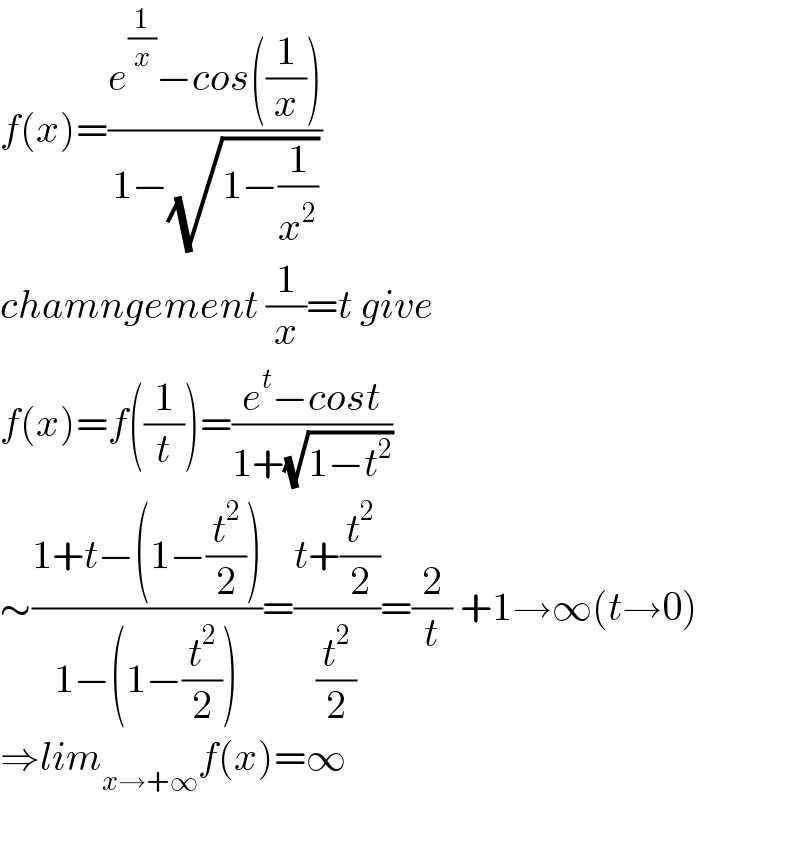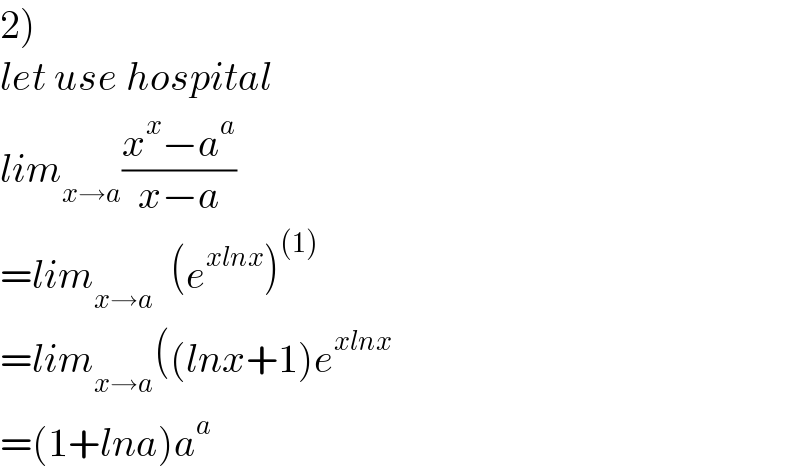
Question and Answers Forum
Question Number 165392 by LEKOUMA last updated on 31/Jan/22

Answered by Mathspace last updated on 31/Jan/22

Answered by Mathspace last updated on 31/Jan/22

| ||
Question and Answers Forum | ||
Question Number 165392 by LEKOUMA last updated on 31/Jan/22 | ||
 | ||
Answered by Mathspace last updated on 31/Jan/22 | ||
 | ||
| ||
Answered by Mathspace last updated on 31/Jan/22 | ||
 | ||
| ||